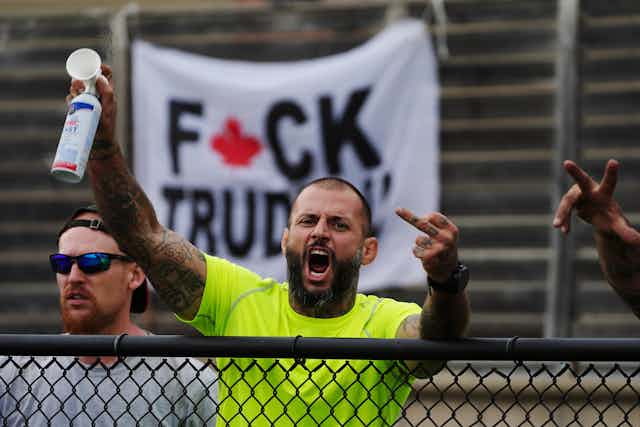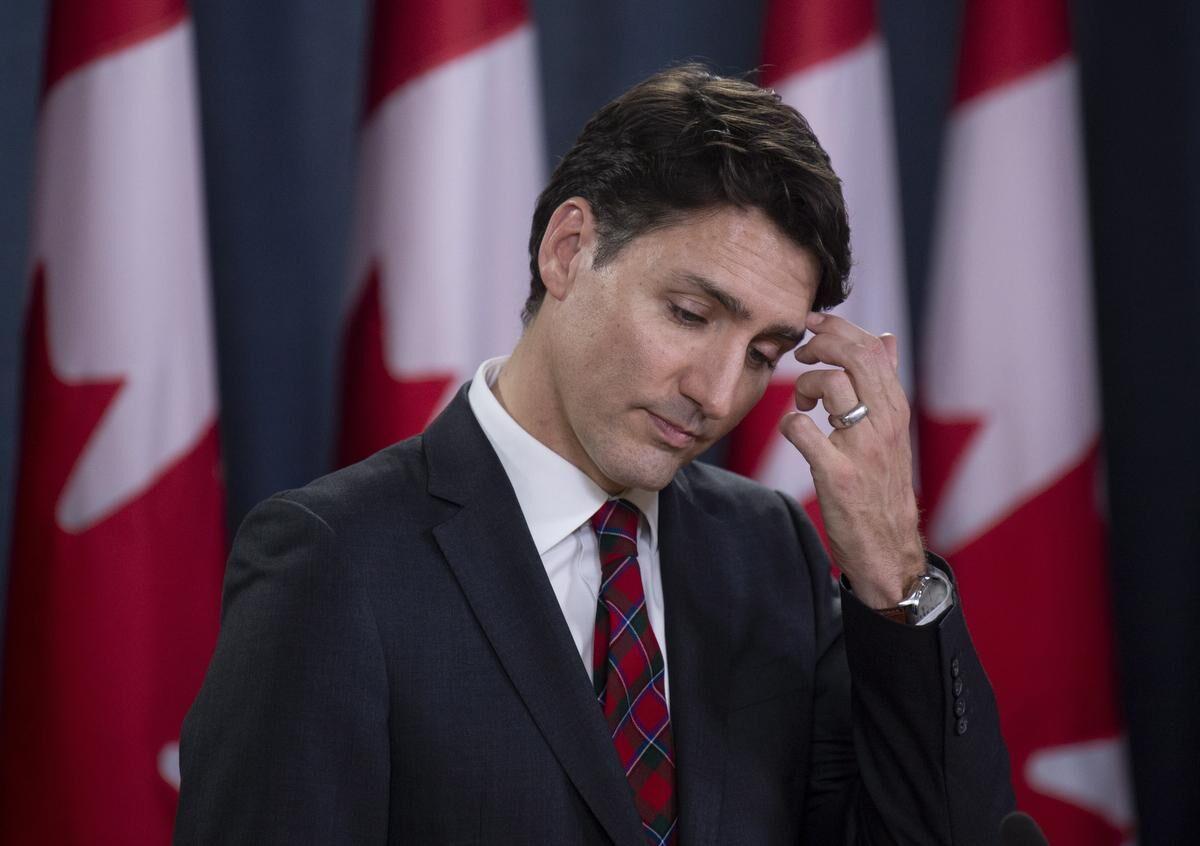Politics
Justin Trudeau Chooses Power and Politics Over Marriage and Family
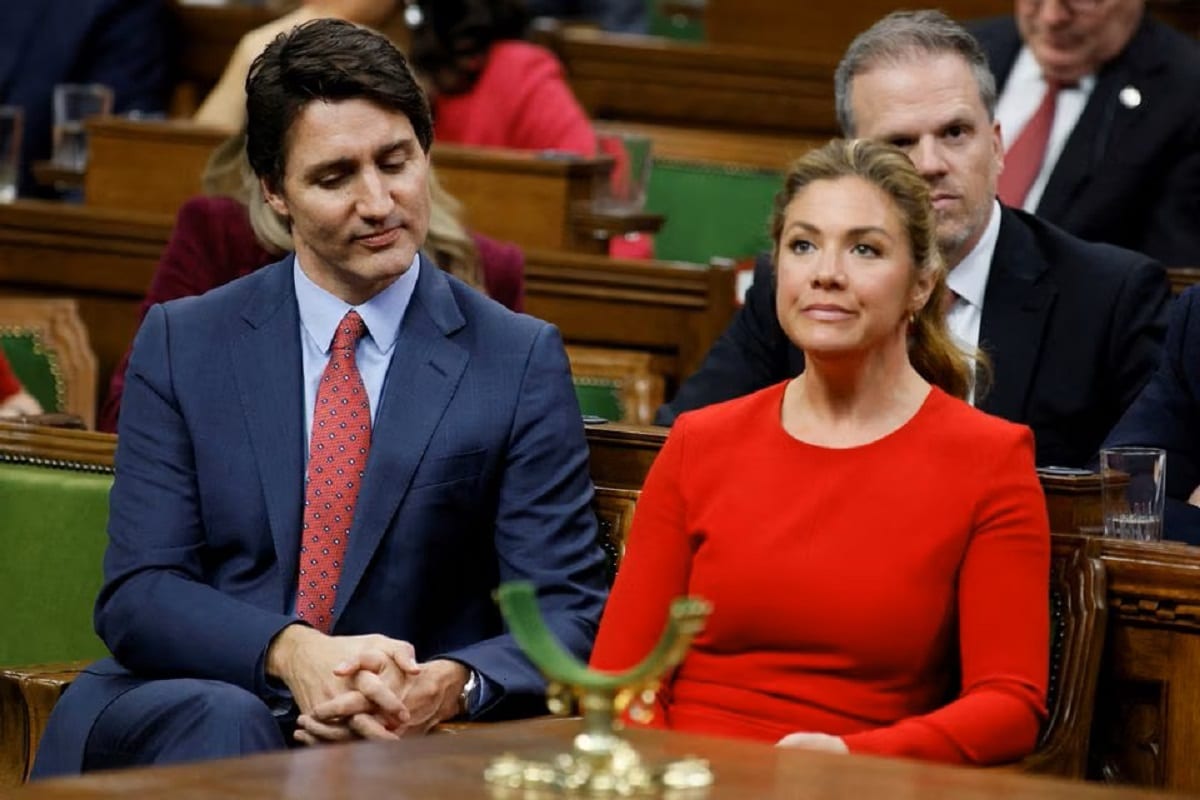
Just a week after a sweeping cabinet upheaval, Justin Trudeau’s stunning news that he and his wife were divorcing highlights the Canadian prime minister’s focus and purpose to lead his Liberal Party into a fourth election, pollsters and insiders say.
Trudeau and his wife Sophie Gregoire Trudeau announced their divorce on Wednesday, following 18 years of marriage. It is one of Trudeau’s most serious personal crises, yet insiders and pundits say he intends to ride out the repercussions.
“He’s running again,” a source close to Trudeau said when asked if the prime minister was reconsidering his candidature. The individual was not authorised to speak publicly about the situation.
Trudeau stated that the pair made the decision after many painful discussions. His office stated that the two will concentrate on raising their children.
Trudeau, 51, has long emphasised the value of family. He and his wife were seen campaigning with their children after three consecutive victories beginning in 2015.
Trudeau’s campaign will, by all accounts, look different when the next election is held, which must take place by October 2025 but could happen sooner.

“The shuffle was a political clearing of the decks, and this is a sort of personal clearing of the decks… he seems determined to stay on,” said Roderick Phillips, a history professor at Carleton University in Ottawa.
To pass legislation, Trudeau’s Liberal minority government relies on the left-of-center New Democratic Party (NDP). The NDP has committed to keep Trudeau in office until the middle of 2025, but the agreement is not legally binding.
“This is an incredibly difficult time for anyone to have to go through… particularly a separation in the public eye,” NDP leader Jagmeet Singh told reporters during a visit to Halifax on Thursday.
On Thursday, Trudeau has no public appearances scheduled. His itinerary stated that he would be attending private meetings.
Public opinion polls reveal that voters are growing tired with Trudeau. The cabinet move was intended to strengthen his core economic team in response to the cost-of-living issues that Canadians have been dealing with for more than two years.
According to Nik Nanos of polling firm Nanos Research, the separation casts new light on a shuffle in which some prospective ministers gained significant raises.
Justin Trudeau must also confront another reality: he is unpopular with large segments of the Canadian populace.
Many Canadians, not just those in Western Canada, have a visceral reaction to Justin Trudeau. Most politicians collect unattractive barnacles that are difficult to shake after a given amount of time in office. Mr. Trudeau is no different.
Justin Trudeau has also suffered from self-inflicted wounds. He has given the idea that there are different rules for him and the rest of us. The stench of privilege surrounded him from the start, when he spent Christmas 2016 on the Aga Khan’s private island, in violation of federal conflict-of-interest regulations.
That emotion extended to his most recent vacation in Costa Rica, where he and his family exited off a private flight, maskless. Again, one regulation applies to him, while another applies to the lumpenproletariat obliged to fly commercial.
Many regard the Prime Minister as an awakened virtue signaler, more concerned with appearance than substance. In May, Justin Trudeau made a flashy journey to Kyiv to reopen the Canadian embassy, which has been vacant since.
Despite his oft-repeated claim that nothing is more important to him than treating Indigenous peoples with respect and dignity, he travelled to Tofino, British Columbia, for a surfing vacation on the first-ever National Day of Truth and Reconciliation last year.
This could explain a recent Abacus poll, which showed the Conservatives leading the Liberals by five points if the election had taken place this month.
The same poll questioned respondents if they thought Justin Trudeau was good or negative. Fifty-one percent said no, his lowest response rate on this topic ever. According to the survey, a decreasing number of respondents believe the country is on the right track.
In the Prairies, Justin Trudeau has always been disliked. But the hostility is spreading. The Prime Minister appears to be a master of wedge politics, which has divided the country more than anything the Conservatives have done in recent memory. Many Canadians have lost faith in the Prime Minister after the SNC-Lavalin scandal and his spat with Jody Wilson-Raybould.
Can Justin Trudeau shake his current stupor? It’s conceivable. Because of the NDP, he has a rather lengthy runway ahead of him. However, much of the harm to Trudeau’s brand is likely irrevocable.
The Prime Minister is many things, but he is not foolish. He notices what’s going on. The question is, what will he do about it?
Justin Trudeau Mr.Family Values Father of 3 Headed for Divorce
Justin Trudeau Mr.Family Values Father of 3 Headed for Divorce
Politics
NDP Leader Jagmeet Singh Vows to Topple Trudeau Government

Canada’s opposition leader said his caucus plans to vote against Justin Trudeau’s government. If the prime minister does not seek a temporary suspension of parliament, the country will be plunged into an election early next year.
If the NDP gains support from other major opposition parties, Trudeau’s government would be forced to step down, sparking an election shortly after Donald Trump’s expected return to the White House in Washington DC.
Trudeau’s Liberals currently lack a majority in the House of Commons and have relied on NDP backing to pass laws and remain in power. Singh and Trudeau previously agreed on a cooperation deal, but the NDP leader ended that arrangement in September.
Singh’s declaration came just before Trudeau unveiled changes to his cabinet, a move aimed at steadying his government following Chrystia Freeland’s surprising resignation as finance minister earlier in the week. Polls show the Liberals are unpopular, and Trudeau is under internal pressure to resign after Freeland’s departure.
“The Liberals don’t deserve another chance,” Singh said. “That’s why the NDP will vote to end this government and let Canadians choose new leadership.”
Trudeau is expected to consider his political future over the holidays, and parliament will reconvene on January 27.
One option for Trudeau is asking the governor-general to prorogue parliament, which would end the current session. This move could delay Singh’s non-confidence vote by postponing lawmakers’ return to Ottawa.
The new cabinet begins its term amid economic uncertainty, worsened by Trump’s threat to impose 25 percent tariffs on Canadian goods.
Dominic LeBlanc — who joined the prime minister at a dinner meeting with Trump at Mar-a-Lago in November — was sworn in as finance minister on Monday after Freeland quit.
Today, Prime Minister Justin Trudeau announced changes to his Cabinet. He said the new cabinet will prioritize Canadians’ most important objectives: enhancing the economy and reducing the cost of living.
The team will continue to advance in housing, child care, and school food while striving to return more money to Canadians’ wallets, building on the investments made since 2015.
The changes to the cabinet are as follows:
- Anita Anand becomes Minister of Transport and Internal Trade
- Gary Anandasangaree becomes Minister of Crown-Indigenous Relations and Northern Affairs and Minister responsible for the Canadian Northern Economic Development Agency
- Steven MacKinnon becomes Minister of Employment, Workforce Development and Labour
- Ginette Petitpas Taylor becomes President of the Treasury Board
The Prime Minister also welcomed the following new members of his Cabinet:
- Rachel Bendayan becomes Minister of Official Languages and Associate Minister of Public Safety
- Élisabeth Brière becomes Minister of National Revenue
- Terry Duguid becomes Minister of Sport and Minister responsible for Prairies Economic Development Canada
- Nate Erskine-Smith becomes Minister of Housing, Infrastructure and Communities
- Darren Fisher becomes Minister of Veterans Affairs and Associate Minister of National Defence
- David J. McGuinty becomes Minister of Public Safety
- Ruby Sahota becomes Minister of Democratic Institutions and Minister responsible for the Federal Economic Development Agency for Southern Ontario.
- Joanne Thompson becomes Minister of Seniors.
These new ministers will work with all members of the Cabinet to deliver real, positive change for Canadians. They join the following ministers remaining in their portfolio:
- Terry Beech, Minister of Citizens’ Services
- Bill Blair, Minister of National Defence
- François-Philippe Champagne, Minister of Innovation, Science and Industry
- Jean-Yves Duclos, Minister of Public Services and Procurement and Quebec Lieutenant
- Karina Gould, Leader of the Government in the House of Commons
- Steven Guilbeault, Minister of Environment and Climate Change
- Patty Hajdu, Minister of Indigenous Services and Minister responsible for the Federal Economic Development Agency for Northern Ontario
- Mark Holland, Minister of Health
- Ahmed Hussen, Minister of International Development
- Gudie Hutchings, Minister of Rural Economic Development and Minister responsible for the Atlantic Canada Opportunities Agency
- Marci Ien, Minister for Women and Gender Equality and Youth
- Mélanie Joly, Minister of Foreign Affairs
- Kamal Khera, Minister of Diversity, Inclusion and Persons with Disabilities
- Dominic LeBlanc, Minister of Finance and Intergovernmental Affairs
- Diane Lebouthillier, Minister of Fisheries, Oceans and the Canadian Coast Guard
- Lawrence MacAulay, Minister of Agriculture and Agri-Food
- Soraya Martinez Ferrada, Minister of Tourism and Minister responsible for the Economic Development Agency of Canada for the Regions of Quebec
- Marc Miller, Minister of Immigration, Refugees and Citizenship
- Mary Ng, Minister of Export Promotion, International Trade and Economic Development
- Harjit S. Sajjan, President of the King’s Privy Council for Canada and Minister of Emergency Preparedness and Minister responsible for the Pacific Economic Development Agency of Canada
- Ya’ara Saks, Minister of Mental Health and Addictions and Associate Minister of Health
- Pascale St-Onge, Minister of Canadian Heritage
- Jenna Sudds, Minister of Families, Children and Social Development
- Rechie Valdez, Minister of Small Business
- Arif Virani, Minister of Justice and Attorney General of Canada
- Jonathan Wilkinson, Minister of Energy and Natural Resources
Politics
Trudeau Accused of “Phony Feminism” After Freeland’s Departure
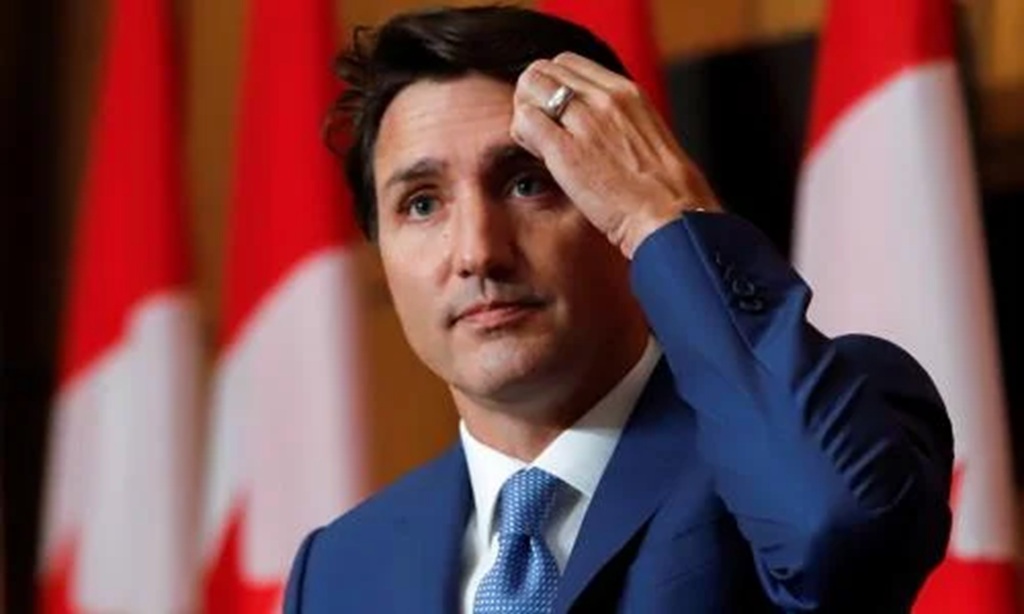
Prime Minister Justin Trudeau is facing a backlash for claiming to be a feminist after firing Chrystia Freeland as Finance Minister and replacing her with Dominic Leblanc on Tuesday.
Justin Trudeau has positioned himself as a feminist leader, a central element of his political identity. In 2015, Canada made history by appointing its first gender-equal cabinet, a significant step in the ongoing effort to champion women’s rights policies.
Trudeau aimed to solidify his reputation as a pioneer in the fight for gender equality. Recent accusations of “phoney feminism” have sparked a heated debate regarding the consistency between his statements and his actions.
Chrystia Freeland’s resignation from the cabinet has sparked criticism directed at Prime Minister Trudeau, raising questions about his approach to women in leadership roles.
Chrystia Freeland, previously regarded as one of Prime Minister Trudeau’s closest allies, has officially resigned from her position as Finance Minister. In her resignation letter, she notably omitted any reference to gender issues.
Freeland’s departure mirrors Trudeau’s removal of several high-profile women;
- Jody Wilson-Raybould, former Attorney General, was removed in 2019 after the SNC-Lavalin controversy.
- Jane Philpott, then President of the Treasury Board, was also ousted following her support for Wilson-Raybould.
- Celina Caesar-Chavannes, a Liberal MP, left politics after claiming Trudeau didn’t handle internal disagreements well.
These firings have fuelled debates about his handling of women in leadership positions and made a mockery of his claims of being a feminist.
Conservative Leader Pierre Poilievre criticized Trudeau for the optics of replacing Freeland with a male cabinet member, calling it evidence of Trudeau’s “fake feminism.”
“Just blame Chrystia Freeland and make her wear it all. Some feminist,” Poilievre said at a news conference on Tuesday.
The same week as Trudeau was insulting Americans for not electing a woman president, he was busy throwing his own woman deputy prime minister under the bus to replace her with a man, Poilievre commented.
Prominent Conservative MP Michelle Rempel Garner asked how any woman in that caucus could “defend that man instead of calling for an election now,” while Alberta Premier Danielle Smith said Trudeau needed to start proving himself if he was going to keep declaring himself “to be such a supporter of women.”
MP Melissa Lantsman referred to an “old boys’ club” being in charge.
“It’s time for credible leadership in the seriousness of this moment, not the fake feminism of this phoney prime minister,” said Lantsman, who represents the Conservatives in the Thornhill riding.
Former Liberal MP Celina Caesar-Chavannes said she believes there is a pattern of female cabinet ministers who were “thrown under the bus” after “challenging someone whose name is Trudeau.”
Trudeau Defended
However, while Freeland’s resignation has sparked accusations of sexism, political experts suggest that focusing solely on gender may oversimplify the issue.
Freeland, an accomplished politician and the country’s first female Finance Minister left primarily due to policy disagreements. Her decision was less about being a powerful woman and more about divergent views on leadership and economic strategy.
Political scientist Dr. Melanee Thomas remarked that qualified women in politics often face frustrations when their expertise is dismissed.
She cautioned against reducing complex political dynamics to gender alone. By framing Freeland’s resignation solely as evidence of sexism, the broader challenges faced by all leaders in Trudeau’s cabinets—men and women alike—are overlooked.
Trudeau has remained relatively quiet, stating that Freeland’s departure was not an “easy day” for him.
Unlike previous controversies, he has not publicly defended his feminist credentials since Freeland’s resignation, leaving a vacuum for critics to dominate the narrative.
Over the years, Trudeau has said that “adding women changes politics,” presenting himself as an ally for feminist causes. His silence now begs the question: does he believe his track record speaks for itself, or is he struggling to respond to the growing skepticism?
Politics
Liberal MPs Call on Trudeau to Resign
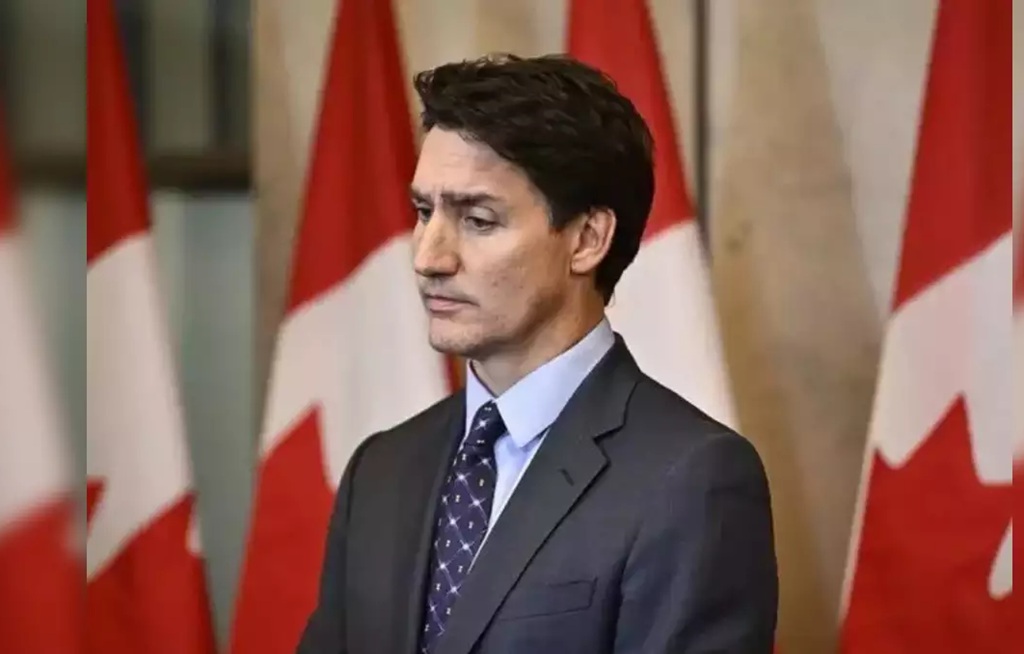
Prime Minister Justin Trudeau is facing extreme political pressure, with Liberal MPs publicly urging him to step down for the sake of the Liberal Party of Canada.
Yesterday, Trudeau faced a triple setback: the resignations of Finance Minister Chrystia Freeland and Housing Minister Sean Fraser and a crushing byelection loss in British Columbia.
Trudeau is facing an uphill battle to maintain his grip on leadership as dissatisfaction among Liberal MPs is mounting. The recent events have added fuel to the fire.
Freeland, formerly one of Trudeau’s most prominent cabinet members, resigned in protest after allegedly being informed she’d be shuffled out of her role as finance minister. Many MPs believe this was poorly handled and symbolic of deeper issues within Trudeau’s leadership.
Adding insult to injury, the Liberals lost a B.C. byelection by 50 percentage points to the Conservatives—a seat they had held in the last general election. This loss has amplified concerns that Trudeau can no longer resonate with voters.
For the Good of the Party
Some Liberal MPs said Tuesday that Prime Minister Justin Trudeau cannot continue as party leader and needs to resign for the party’s good.
Liberal MPs like Wayne Long and Ken Hardie are now outspoken critics, claiming that Trudeau’s leadership is a huge liability for the party. Long described the Prime Minister as “living in a false reality,” warning that staying the course could lead the Liberals to electoral disaster.
Ontario MP Francis Drouin, a longstanding defender of Trudeau, has joined the chorus of dissent. He doubted the party’s ability to move forward under Trudeau, saying, “I’ve been a great defender, but I just don’t see how we recover.”
Other MPs, including Alexandra Mendès and Sean Casey, have echoed similar sentiments. Mendès stated she was deeply affected by Freeland’s treatment, while Casey suggested that Trudeau no longer enjoys the confidence of the caucus.
The Liberal caucus appears more divided than ever, with roughly a third of MPs reportedly favouring Trudeau’s immediate resignation. According to Long, between 40 and 50 MPs actively push for his resignation, while around 50 remain loyal to him. The rest are seemingly undecided or staying silent.
Trudeau’s Unwillingness to relinquish power
This lack of unity is becoming a significant issue. MP Chad Collins admitted, “I can say we’re united.” He suggested a secret ballot within the caucus would reveal overwhelming opposition to Trudeau’s continued leadership.
At a Liberal caucus meeting today, Trudeau acknowledged the growing discontent; however, he hasn’t shown any signs of stepping down. He assured MPs he understood their concerns, but many doubted his willingness to relinquish power.
The Liberals are at a crossroads. Liberal MPs worry they could lose the next general election if Trudeau remains in office, with polls showing Trudeau’s public support hovering around 20 percent.
MPs have called for a change before it’s too late, calling Trudeau’s leadership a “drag” on the party’s prospects.
The internal division might deepen if Trudeau doesn’t resign. According to some political analysts, more backbenchers will switch sides against Trudeau, especially if they are left out of the next cabinet move.
One thing is certain: the Liberal Party must decide soon. The longer the ambiguity persists, the more difficult it will be to regain voters’ confidence. For now, Canadians are left wondering whether Trudeau’s tenure as prime minister is ending—or if he will beat the odds once more.
Related News:
Dominic LeBlanc Sworn in as Canada’s New Finance Minister
-
Politics4 weeks ago
Miller Expects 4.9 Million Foreigners to Leave Canada Voluntarily
-
News3 weeks ago
Nolinor Boeing 737 Crash Lands in Montreal
-
News3 weeks ago
“Shocking Video” Vancouver Police Shoot Armed Suspect 10 Times
-
Tech4 weeks ago
Increasing its Stake in OpenAI by $1.5 Billion is a Possibility for SoftBank.
-
Tech3 weeks ago
Canadian Media Firms Are Suing OpenAI in a Potential Billion-Dollar Dispute.
-
News4 weeks ago
Trudeau Called the Greatest Threat to NATO

